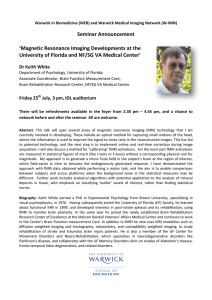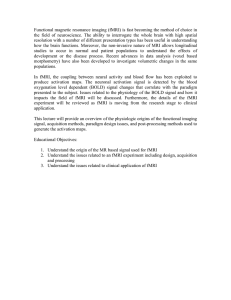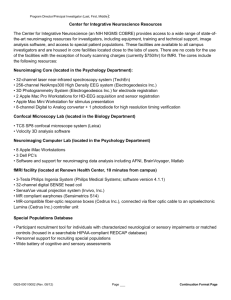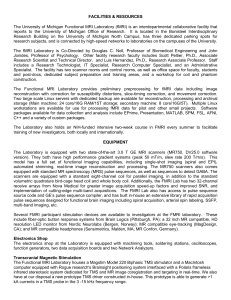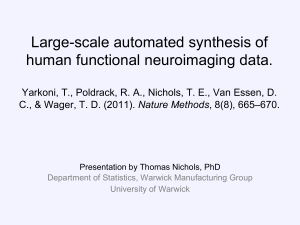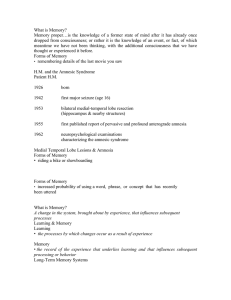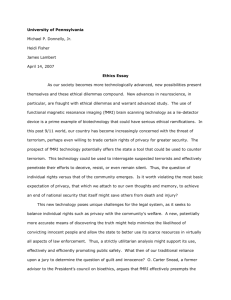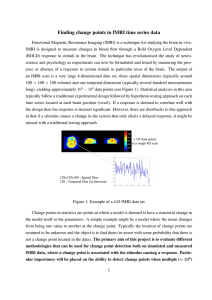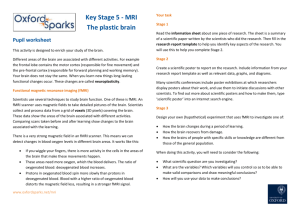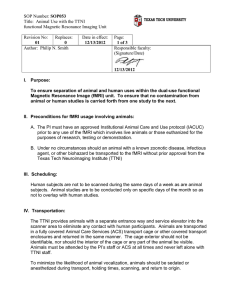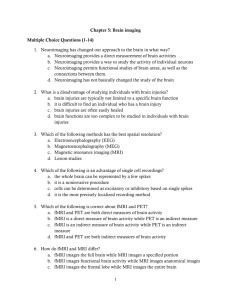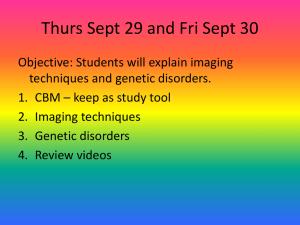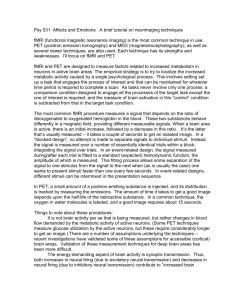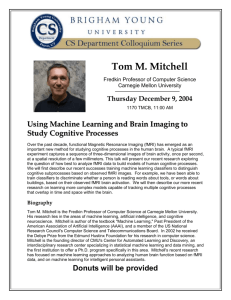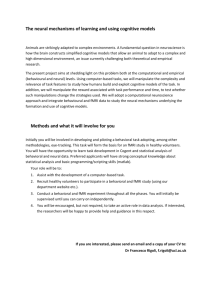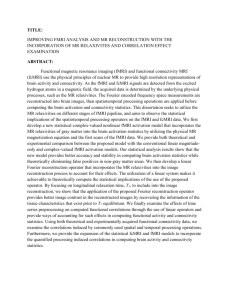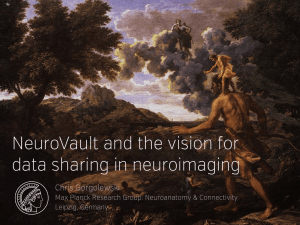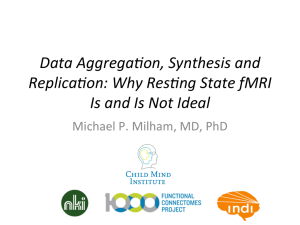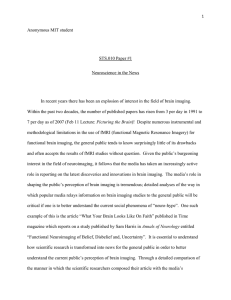Psych9223_F2014_L01_..
advertisement
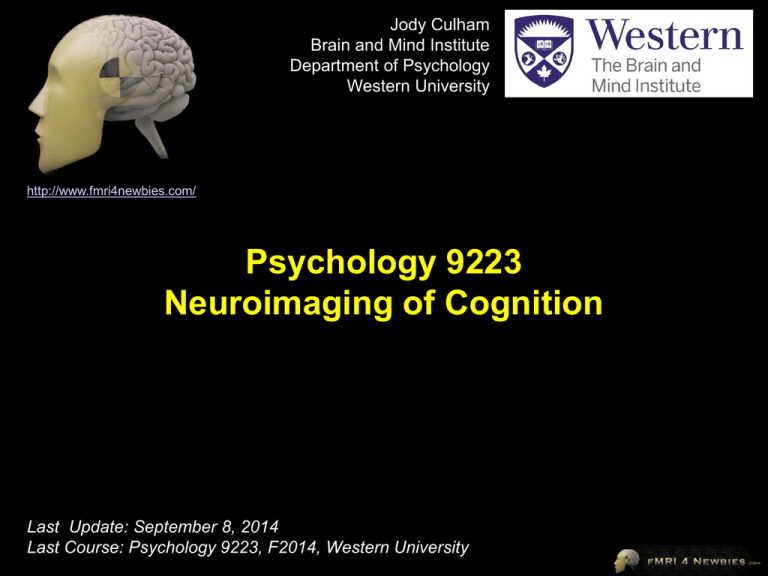
Jody Culham Brain and Mind Institute Department of Psychology Western University http://www.fmri4newbies.com/ Psychology 9223 Neuroimaging of Cognition Last Update: September 8, 2014 Last Course: Psychology 9223, F2014, Western University Course Description Brain imaging, particularly functional magnetic resonance imaging (fMRI), has become a common tool to study specialized human brain regions involved in cognitive functions. The course will be comprised of a combination of lectures and hands-on tutorials using Brain Voyager software. The lectures will cover brain imaging technology, current techniques for basic and advanced experimental design and analysis, and a discussion of the merits and limitations of neuroimaging as a tool for cognitive neuroscientists. The tutorials will cover fMRI data structure, preprocessing, and analysis. The course will emphasize the development of skills that are important for a career in academia: grant-writing, distilling core ideas from complex fields, and critical thinking. By the end of the class, students should be able to read, understand, and critique papers in brain imaging. Objectives • • • • • • To provide students with a critical overview of how brain imaging research can contribute to cognitive neuroscience research. To provide students with sufficient understanding of neuroimaging design and methods that they can read and critique articles on the topic and can propose a well-designed neuroimaging experiment. To give students a conceptual understanding of the technical details of fMRI (like MR physics, the BOLD response, and preprocessing steps) without requiring a strong background in physics, biology, or mathematics. To give students a hands-on understanding of brain imaging analysis, with an emphasis not on “which buttons to push” but rather on why one might make certain decisions about design and analysis. To have students think about how fMRI might be used to address their own research questions. To give students experience with several key skills of academia: grantwriting, distilling core ideas from complex fields, and critical thinking. Tutorials TA • Scott Macdonald, smacd49@uwo.ca Goals: • to get a feel for working with fMRI data and reinforce core concepts from lectures (e.g., preprocessing, smoothing, contrasts) • although tutorials will use Brain Voyager, the goal will NOT be learning how to use the software per se but rather to understand core concepts that generalize across software packages Course Sessions Lecture Only Days – 9:30 am – 12:00 noonish – SSC 7405/9 (unless we find a bigger room) Lecture + Tutorial • Lecture – 9:30 am – 11:00 am – SSC 7405/9 (unless we find a bigger room) • Tutorial – 11:15 am – 12:20 pm – SSC 1032 (unless we find a bigger room) – only open to credit students Course Schedule Evaluation • Written Grant-Style Research Proposal (65%) – max: 16 double-spaced pages + figures – brief literature review – new question • can’t be part of student’s thesis – experimental design and analysis – features of grant (hypotheses, consideration of pitfalls, budget) – goal: convert concepts from class into a project • Hands-on fMRI Analysis: Short Assignments (35%) – 7 assignments worth 5% each No Plagiarism Grading Rubric How to be a Grad Student • Determine your goals – To learn the material for your purposes • to understand fMRI papers? • to do fMRI projects – To gather the skills and understanding to write a good proposal • Learn how to learn – There’s no multiple choice in real life – Know how to find things, who to ask • Learn how to read 80/20 Rule (Pareto Principle) Textbook (Recommended) 3rd edition hot off the presses Western bookstore • $116 • taking orders Amazon.ca • $112 • available for pre-order (date unspecified) Coursemart eBook • $46 for 180 days • $88 for unlimited access
